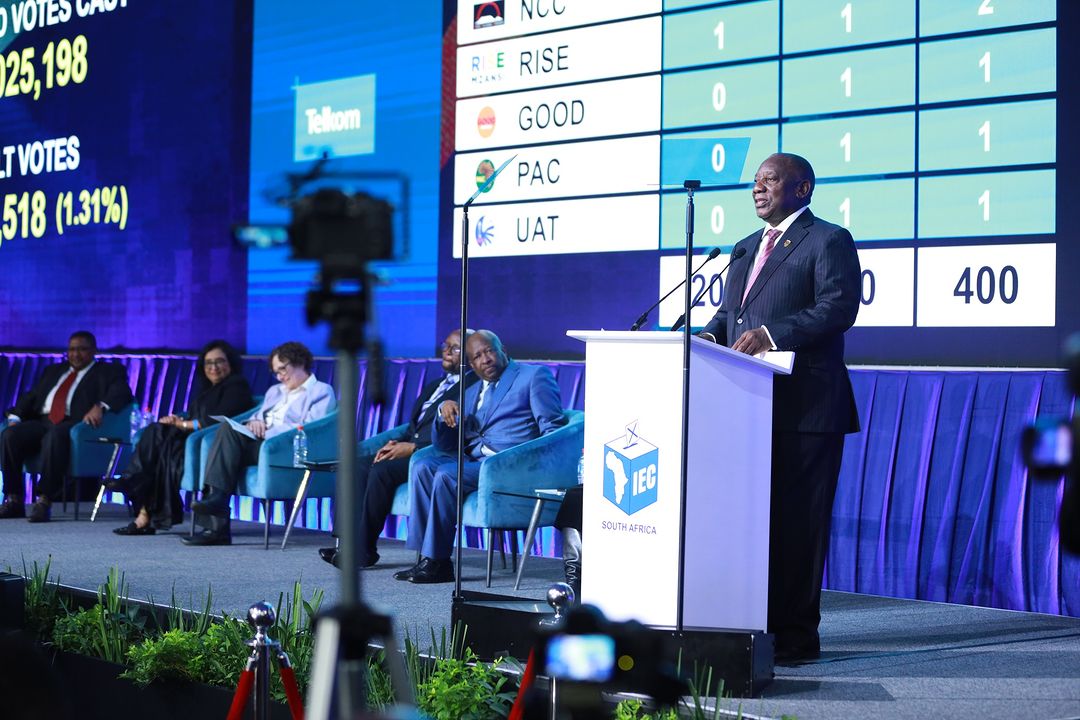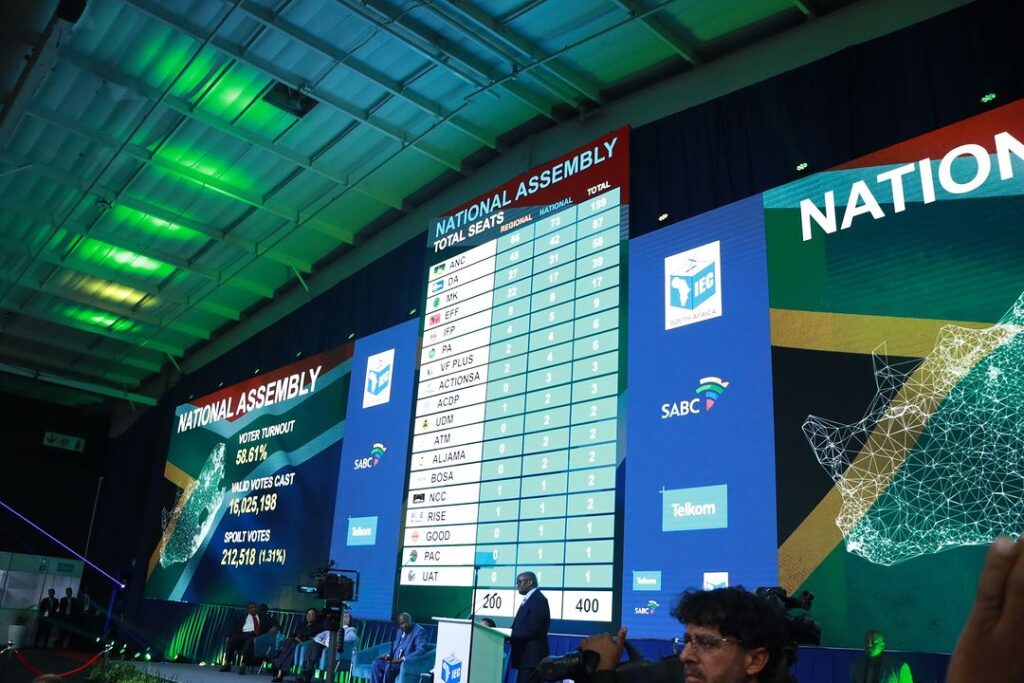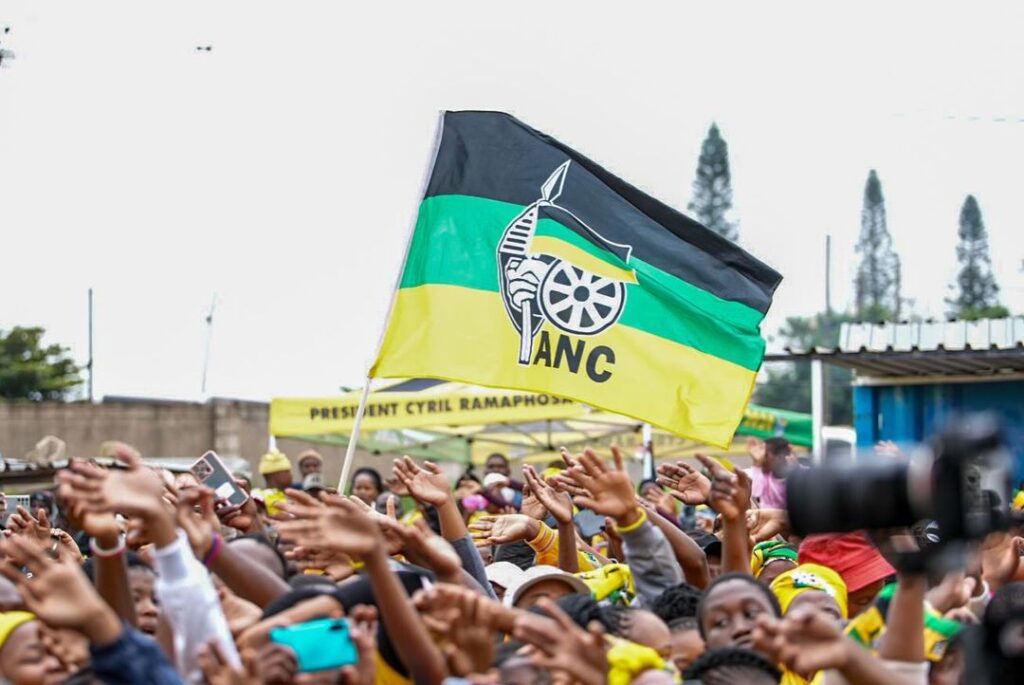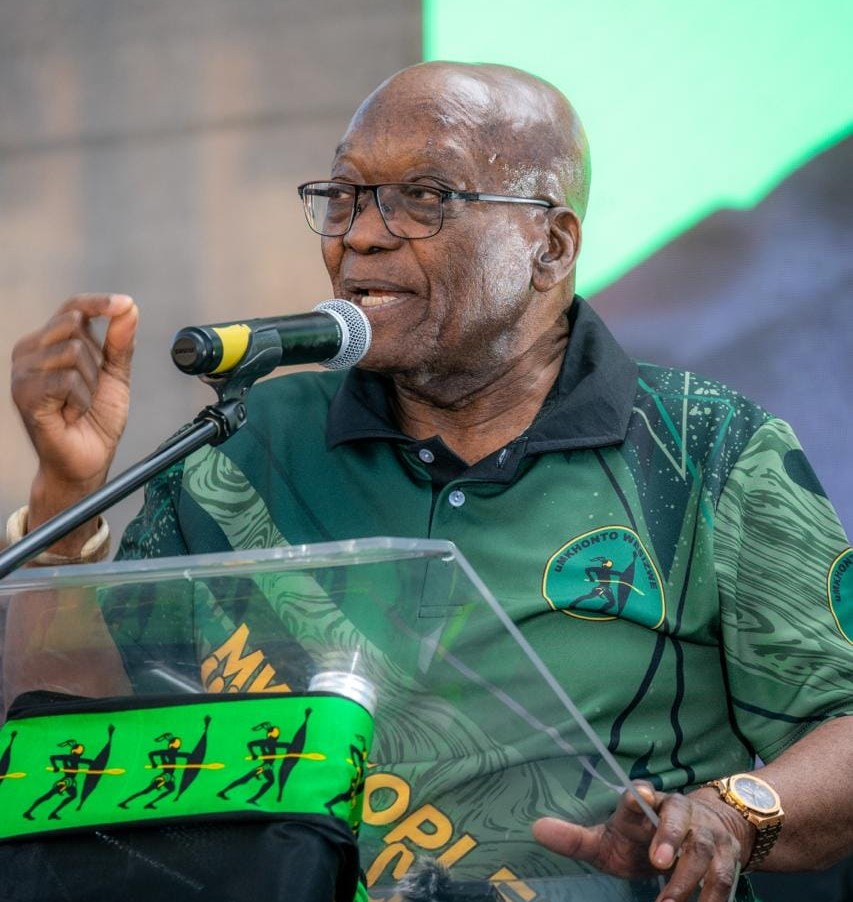
A New Era for South Africa: The Winners and the Losers Of the 2024 Elections
With the official results of the 2024 National and Provincial Elections announced by the Independent Electoral Commission (IEC) on the evening of 2 June 2024, the voices of over 16 million South African voters spoke through the ballots. The seventh democratic elections of the country not only marked an epoch-making turn in Mzansi’s social, economic, and political trajectory, the results marked the end of the African National Congress’s (ANC) dominant rule as the country’s leading party, as the party secured the number-one spot in the national elections, but failed to win an outright majority.
The results of the elections mean that South Africa is now headed for a coalition government, with the country’s leading parties now holding talks, with the ANC, the EFF, and DA having already publicly made it known that they are ready to hold coalition talks with any party set on aligning with its political ideals.

The elections results
The End of an Era for the African National Congress
The greatest loser in this year’s fiercely contested battle for national power is the ANC. Helmed by Cyril Ramaphosa (who took over from newly-formed MK President Jacob Zuma, who was the then-president of the party till 2019), the ANC came into these elections relatively on the back foot, with much of the country aggrieved about the energy crisis of loadshedding, the unlivable economy gradually crippling the average South African, and the sustained in-party corruption leading to untold sums of money meant for the state and the people being mismanaged.
The grievances of the people made a deep cut in the elections, with the ANC losing their status as an outright-majority party for the very first time since the party came into power in 1994, ushering in a new period for then Apartheid-structured country. The party lost four provinces: the Western Cape; their strongholds KwaZulu-Natal, and Gauteng; as well as the Northern Cape. Although they secured the number-one spots in Gauteng and Northern Cape, it wasn’t with a total majority, with the party scoring a 36% in the former and 49% in the latter.
Furthermore, the party dropping to 40% nationally, a devastating nosedive from the 57% they were able to secure in 2019, not only ended the party’s political and power chokehold on the country, it marked a definitive end to the one-man rulership of the party, meaning that the only way for the country to move forward is for them to strike a deal with parties behind them on the polls.
Even though the ANC claimed the top spot numerically, it’s a Pyrrhic victory, as their current standing on the log means that they’ll have 159 seats in parliament, a pale comparison to the 230 they held before, and, above all, the party is no longer the grand overlord.

MK Party: The Biggest “Winner”
Although the new dog in the block uMkhonto WeSizwe (MK) has been alive for only six months, they have somehow emerged as the biggest “winners”. Factually, apart from KZN as a province, MK hasn’t won anything, but the impact the party has had on the standing of the elections is enough to count them as arguably the greatest winner, and quite possibly the biggest political upset since the ANC unseated the NP in 94.
Sandwiched between the second-placed Democratic Alliance (DA) and former third-biggest party the Economic Freedom Fighters (EFF), MK secured a shocking podium finish, coming in at number three with a total of 2.3 million votes nationally. The party’s greatest feat in the elections, however, came from the party usurping KZN as a province, knocking the ANC off the top spot, securing an upset.
Founded by Jacob Zuma, MK had a lingering effect on ANC’s supporter base, with a considerable chunk of MK’s audience comprising of disgruntled former ANC followers as well as legions of Msholozi apologists. The impact blew the elections wide open as the ANC lost numbers, undoubtably costing them those crucial millions of voters that would’ve helped them get over the 51% mark nationally.
Whether the mandate was to obtain 2/3 majority nationally or to destabilse the ANC enough to sabotage their chances of securing outright power over the country, the MK’s formation was a catalyst in the country becoming a coalition-led nation.

MK Leader Jacob Zuma | SUPPLIED
What Now for the Country?
With the country sitting in unchartered terrain, the prospect of a coalition government has been met with enthusiasm by party leaders such as ANC’s Cyril Ramaphosa, DA’s John Steenhuisen, the EFF’s Julius Malema, and outspoken Patriotic Alliance leader Gayton McKenzie.
Coalition talks are still underway between parties. Wide speculations and popular opinion have framed the ANC-DA coalition as being the most likely avenue for a multi-headed government.
The weeks to come will see the potential and imminent announcement of a new head of state as well as the appointment of other members into positions of power.
The Elections Results:
- ANC – 6 459 683 (40.18%)
- DA – 3 505 735 (21.81%)
- MK – 2 344 309 (14.58%)
- EFF – 1 529 961 (9.52%)
- IFP – 618 207 (3.85%)
- PA – 330 425 (2.06%)
- VF Plus – 218 850 (1.36%)
- ActionSA – 192 373 (1.2%)
- ACDP – 96 575 (0.6%)
- UDM – 78 448 (0.49%)


